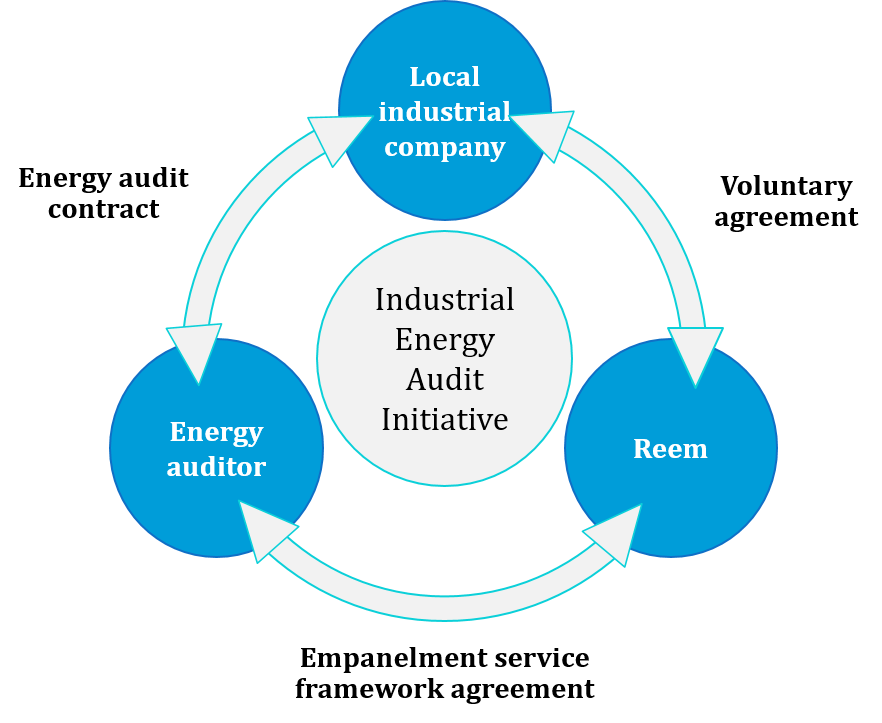The Industrial Energy Audit Initiative is part of the Industrial Decarbonisation programme within Ras Al Khaimah Integrated Sustainability (RIS) Strategy 2050 aimed at enhancing the competitiveness and sustainability of local industrial companies. It was launched during RAK Energy Summit 2022. The initiative supports several UAE strategies and policies, including Resolution No. 20 of 2024 Regarding Energy Audits in Large Industrial Facilities in Ras Al Khaimah, the Federal Energy Management Regulation in Industrial Facilities, Operation 300bn of the UAE Ministry of Industry and Advanced Technology, and the UAE Circular Economy Policy.
The initiative, now formalised into a regulatory mandate through Resolution No. 20 of 2024, requires local industrial companies exceeding a minimum annual energy consumption threshold to conduct energy audits, implement cost-effective energy-saving actions and report their progress. The resolution is accompanied by Implementation Guidelines to support industrial companies throughout the auditing and reporting process.

Reem, the Energy Efficiency & Renewables Office of Ras Al Khaimah Municipality engages with local industrial companies offering supported audits and a knowledge sharing platform in exchange of an obligation of participants to report on energy data and implementation of identified energy efficiency measures.
Reem, through a competitive bidding process, empanels expert industrial auditors and makes the negotiated terms and conditions available to participants in the initiative. The currently empanelled auditors for each of the target industry sectors are the following:
| Sector | Empanelled auditors | ||
|---|---|---|---|
| Building materials | EESL | INDESCO | Pactive |
| Cement | EESL | ENGIE | Pactive |
| Ceramics | EESL | ENGIE | - |
| Glass | EESL | Machinery People | Pactive |
| Metal fabrication | EESL | ENGIE | Pactive |
| Others | EESL | Machinery People | INDESCO |
| Packaging | INDESCO | ENOVA | Pactive |
| Quarries | EESL | Farnek | Pactive |
The energy audit includes the assessment of the industrial process, site visits, measurements and analyses. It is partly supported by Reem personnel, and the results of the audit are summarised in an executive report, following Reem standards, that is shared both with the participating companies and Reem.
The cost of the audits is fixed in the empanelment terms and has to be paid by the participating company to the auditor. Financing facilities to pay for the cost of the audit are available through local supporting financial institutions, and details can be provided by Reem upon request.
Finally, participating companies will also benefit from assessments, by providers of common processes and technologies across industries (e.g. compressed air, electric motors, etc.), which will help identify collective solutions to improve the overall energy efficiency of the industrial sector.
Finally, participating companies will also benefit from assessments, by providers of common processes and technologies across industries (e.g. compressed air, electric motors, etc.), which will help identify collective solutions to improve the overall energy efficiency of the industrial sector.
For more information, contact: info.eer@mun.rak.ae
